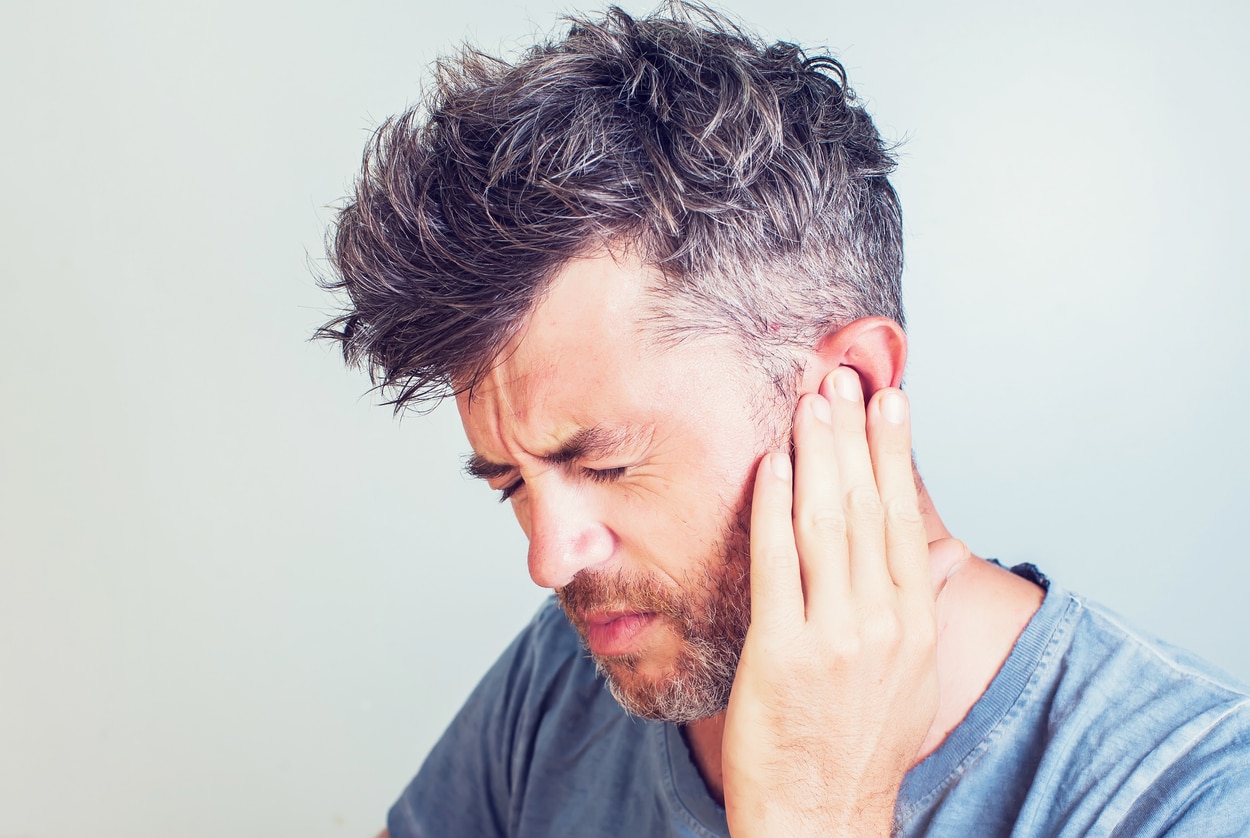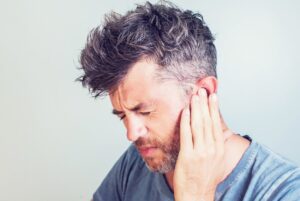Tinnitus occurs when there is ringing or other noise in your ears. The noise you hear is not caused by external sound when suffering from Tinnitus. Other people usually cannot hear it. Tinnitus is a common problem. It affects around 15-20% of people and is particularly common in the elderly.
Causes of Tinnitus
Tinnitus is a disease related to ringing in the ears. An underlying condition, such as usually cause it.
- Age-related hearing loss
- Ear injury
- A problem with the circulatory system.
For many people, Tinnitus improves with treatment of the underlying cause or with other treatments that reduce or mask noise, making Tinnitus less noticeable.
Indication
Tinnitus is most frequently portrayed as a ringing in the ears, even though no outer sound is available. Tinnitus Guard is an effective supplement for the treatment of Tinnitus. Be that as it may, Tinnitus can likewise cause different kinds of apparition clamours in your ears, including:
- Humming
- Thundering
- Clicking
- Murmuring
The vast majority of Tinnitus have abstract or Tinnitus that no one but you can hear. The commotions of Tinnitus might shift in pitch from a clap of low thunder to a high screech, and you might hear it in one of the two ears. Now and again, the sound can be so. It impedes your capacity to think or hear outer sound. Tinnitus might be available constantly, or it might go back and forth.
In uncommon cases, Tinnitus can happen as a musical beating or whooshing sound, regularly on schedule with your pulse. This is called pulsatile Tinnitus. Assuming you have pulsatile Tinnitus, your PCP might have the option to hear your Tinnitus when the person in question does an assessment (objective Tinnitus).
Who can have Tinnitus?
Tinnitus can happen to anyone; however, those elements can also grow your hazards.
- Loud noise exposure. Loud noises, including heavy equipment, chain saws and firearms, are not unusual place reasserts of noise-associated listening to lose.
- Portable track devices, including MP3 players, can also reason noise-associated listening to loss if performed loudly for lengthy periods.
- People who paintings in noisy environments — including manufacturing unit and production workers, musicians, and soldiers — are especially at hazard.
- Age. As you age, the range of functioning nerve fibres to your ears declines, probably inflicting listening to issues frequently related to Tinnitus.
- Sex. Men are much more likely to enjoy Tinnitus. Tobacco and alcohol use.
- Smokers have a better hazard of growing Tinnitus.
- Drinking alcohol additionally will increase the hazard of Tinnitus.
Other ear disorders, chronic health diseases, including traumas or conditions that damage the nerves in your ear or the hearing centre in your brain, are less common causes of Tinnitus.
Adverse effects of Tinnitus
Tinnitus has diverse effects on different people. Tinnitus can have a substantial impact on the life quality of some people. Following are the symptoms if you have Tinnitus:
Fatigue \Stress
Problems with sleep
Concentration issues
Problems with memory
Depression
Irritability and anxiety
Headaches
Business and family life issues
Treatment for these disorders may not immediately affect Tinnitus, but it can make you feel better.
Preventions
Tinnitus is the outcome of something that can’t avoid. Certain precautions, however, can help prevent certain types of Tinnitus.
Protect your ears with hearing aids. Loud noises can damage the nerves in the ears over time, resulting in hearing loss and Tinnitus.
Make an effort to restrict your exposure to loud noises. If you can’t avoid hearing loud noises, wear ear protection to safeguard your hearing. Always wear over-the-ear hearing protection if you use chainsaws, are a musician, work in an industry that requires noisy machinery, or use firearms (particularly pistols or shotguns).
Reduce the volume. Hearing loss and Tinnitus can be caused by long-term exposure to amplified music without ear protection or by listening to music at very high volumes through headphones.
Take care of your heart and circulatory system. Regular exercise, a nutritious diet, and other measures to maintain your blood vessels healthily can help you avoid Tinnitus caused by diabetes.
Medical help for Tinnitus
There isn’t a single remedy for Tinnitus right now. Isn’t it bothering you that the ailment is easily acquired yet unlikely to go away permanently? Tinnitus has sparked outrage among scientists, medical professionals, and researchers who have yet to come up with a remedy. Meanwhile, people may find relief from specific dietary supplements designed to efficiently manage the usual whooshing, buzzing, and ringing sounds they hear.
Our editorial team led down a route that included a possible supplement called Tinnitus Guard after spending a significant amount of time researching. Is Tinnitus Guard effective? Why didn’t we hear about it before if that’s the case? These are the precise questions that will be answered in the accompanying review, along with Tinnitus Guard’s distinguishing characteristics (if applicable). Let’s begin by looking into why it exists in the first place.
What is Tinnitus Guard?
Tinnitus Guard is a dietary supplement that has been shown to help reduce ear noise (such as ringing and buzzing) while supporting healthy inner ear function, memory, focus, and attention. The purpose of this solution, developed and launched to the market by a business named Giv Health, is to improve quality of life. The fact that it has been accomplished using only natural substances is incredible. “To what extent does the latter claim hold?” is the central question that everyone should be asking themselves right now. The answer is twofold: first, we must understand the underlying cause of Tinnitus, and second, elements that are thought to reduce mental and physical consequences must be made public.
Treatment for Tinnitus
There is yet no single tinnitus treatment that is effective for everyone. However, efforts to identify a viable therapy are still underway.
If an underlying cause of your Tinnitus is identified, addressing it may assist in improving your Tinnitus – for example, reducing earwax build-up may help.
If a precise cause is identified, treatment will assist you in the day-to-day management of the illness.
Tinnitus counselling – listening to neutral noises to distract yourself from the sound of Tinnitus – a type of therapy that seeks to teach you more about Tinnitus and how to deal with it more effectively.
CBT (cognitive behavioural treatment) seeks to help you change how you think about your Tinnitus to become less noticeable.
Tinnitus retraining therapy (TRT) is a type of therapy that seeks to help you retrain your brain’s response to Tinnitus so that you can stop hearing it.










